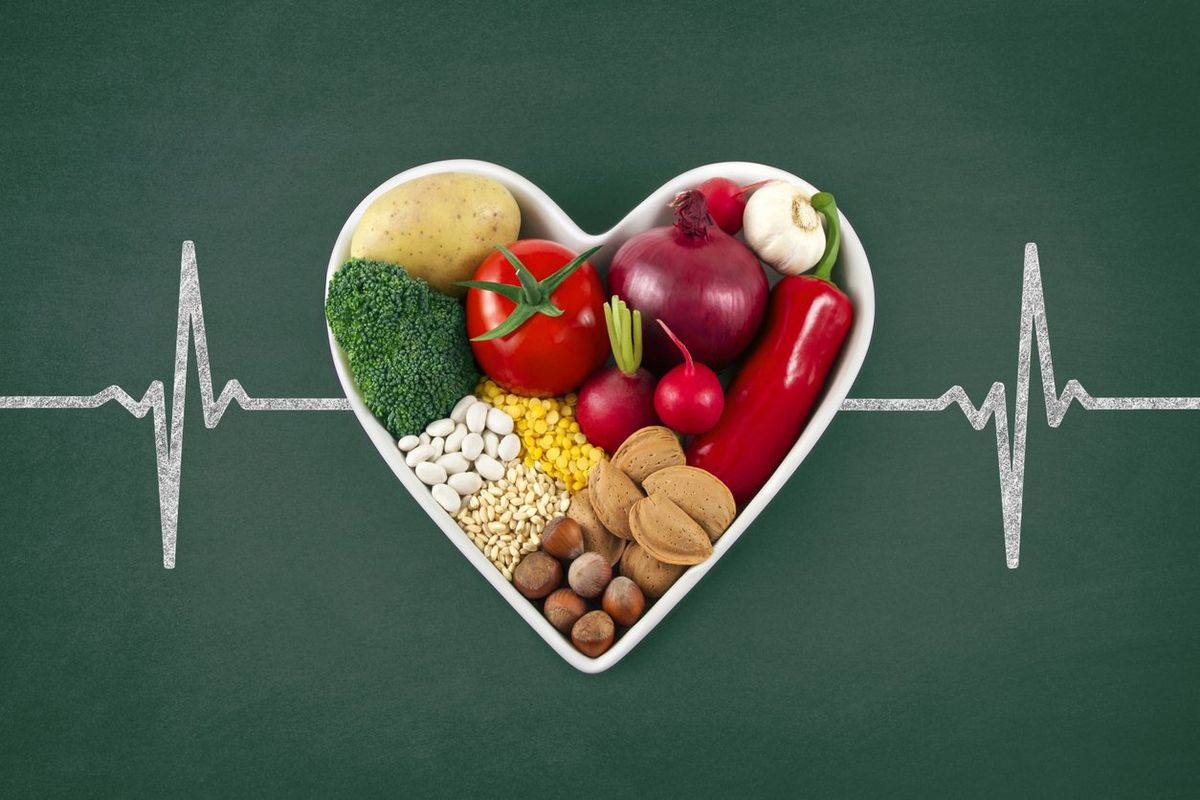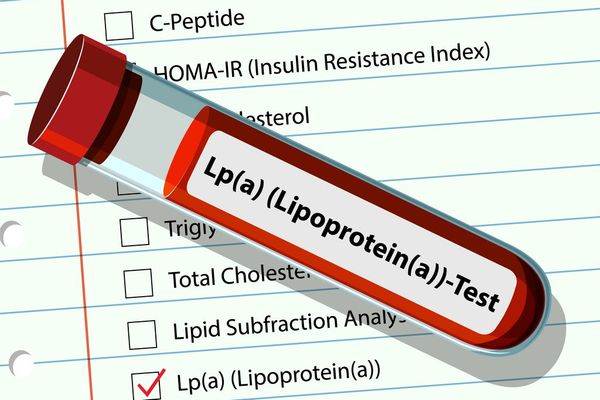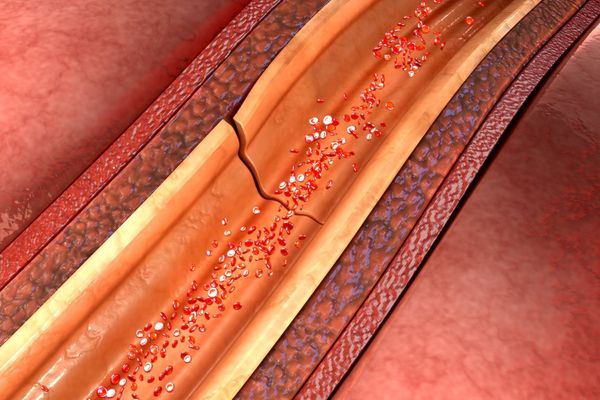February is American Heart Month.
Most of us have a favorite comfort food we go to every now and then that’s not exactly healthy (looking at you, potato chips). But what you eat on the daily has a big impact on your heart health.
Research shows eating more processed foods (i.e., those dang potato chips), red meat and refined sugar can lead to cardiovascular disease, including heart disease. And heart disease is the No. 1 killer of women in the United States.
Read: Symptoms of Heart Attacks in Women >>
Of course, it’s not always easy to choose an apple over an apple fritter, but the wide range of foods that are considered heart-healthy may surprise you. “[A heart-healthy diet] is not as boring as people may think,” said cardiologist Nieca Goldberg, M.D., associate professor of medicine at NYU Grossman School of Medicine and member of HealthyWomen’s Women’s Health Advisory Council. “It’s just lower in meats and sweets.”What is a heart-healthy diet?
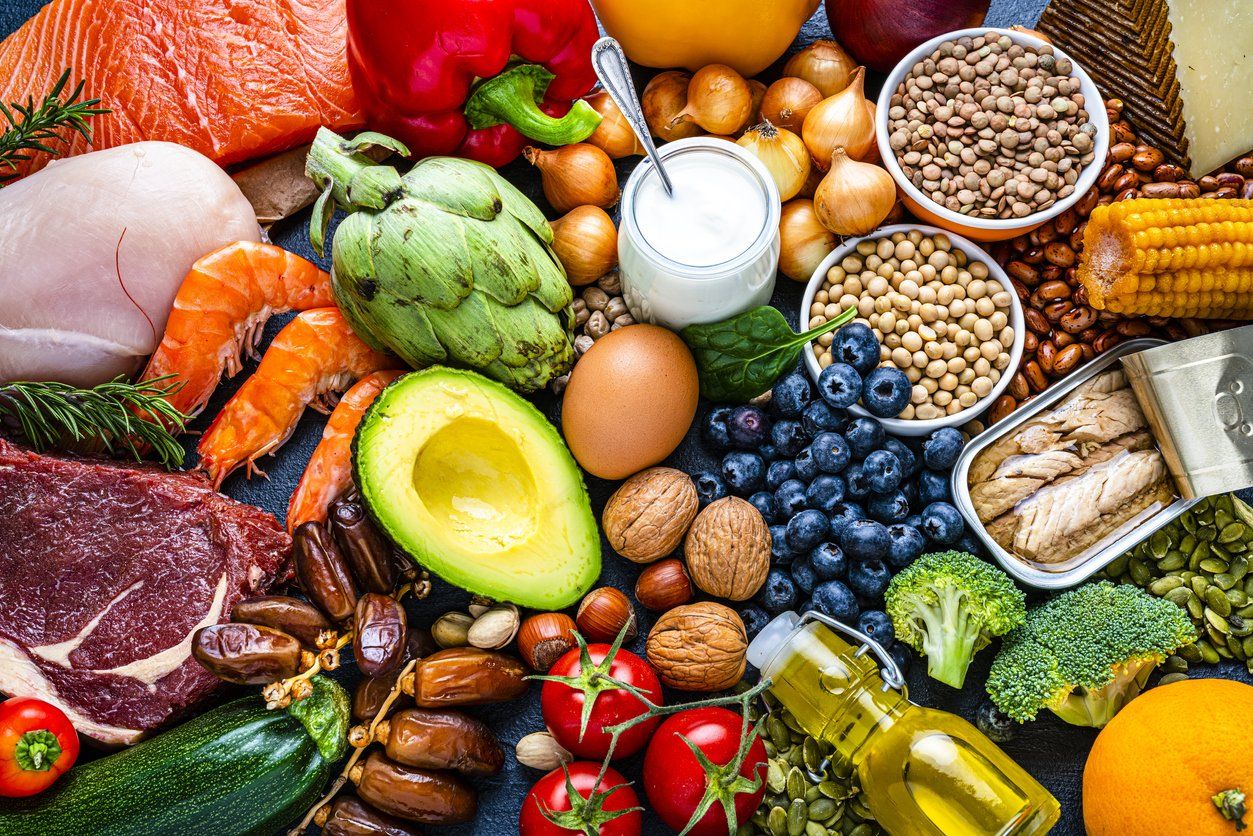
iStock.com/fcafotodigital
Low carb, high-protein diets like the keto diet have been in the spotlight in recent years. But a high protein and high fat way of eating can increase levels of LDL (bad) cholesterol, which increases the risk for heart disease.
Goldberg said the best example of a heart-healthy diet is the Mediterranean diet. “To be more specific, it's predominantly plant based with lean components of protein and also fruits, vegetables and whole grains.”
The diet is based on foods and eating habits in countries bordering the Mediterranean Sea, including Italy and France.
The list of foods on the Mediterranean diet also include:
- Dairy products
- Eggs
- Fish
- Potatoes
- Beans
- Nuts and seeds
- Extra virgin olive oil
Overall, a Mediterranean-style diet favors fresh and local ingredients, very small amounts of red meat (if at all) and fruit for your sweet tooth.
“The diet really leans into helping with lowering cholesterol and lowering heart disease risk because it’s low in saturated fat, but it uses healthy fats like olive oil and omega-3 fats from fish and those oils don't raise cholesterol,” Goldberg said.
High LDL cholesterol levels increase the risk for heart attack and stroke. So less LDL means a healthier heart. One study found that women who closely followed a Mediterranean-style eating pattern had a 25% reduced risk of heart attack and stroke compared to women not following a Mediterranean diet.
Read: 5 Foods to Help You Live to 100 (Really) >>
Even people with familial hypercholesterolemia, inherited high cholesterol, can adopt a heart-healthy eating plan to reduce the risk of developing heart disease (although many people still need medication too). Research shows the combination of cholesterol-lowering medications and a healthy diet can lower your risk of heart disease by 80%.
The Mediterranean-style way of eating can reduce the risk for high blood pressure which can cause heart problems as well as reduce the risk for obesity and diabetes.
Know your risk for heart disease

iStock.com/nortonRSX
Everyone should see a healthcare provider (HCP) at least once a year for a checkup. Goldberg said it’s important to have an in-person visit to check your blood pressure. “Get your blood pressure checked to make sure it's in the normal range or, if it's out of range, to learn the best way that it should be treated for you.”
Goldberg said blood tests for cholesterol are also important for heart health. In addition to a lipid panel (the common cholesterol test), women and people assigned female at birth may want to ask about Apo B and lipoprotein (a) blood tests. Lipoprotein A measures a type of LDL and can be used to diagnose diseases of the heart. The Apo B test measures your risk for cardiovascular disease by the amount of Apo B in your blood. Apo B helps make plaque that can block your arteries.
“These measurements are used to fine-tune your assessment of cholesterol and are helpful in assessing what your needs for treatment would be,” Goldberg said. Other tests such as an EKG can also be helpful to gauge your risk since it looks at your heart rhythm and can show if you’ve had a previous heart attack.
It may be tempting to skip the HCP office and try an at-home cholesterol test, but Goldberg said the at-home tests should be thought of as a supplement to your office visit. “There are certain nuances when you treat cholesterol, and a home cholesterol test will not tell you the whole story.”
Incorporating heart-healthy foods into your diet
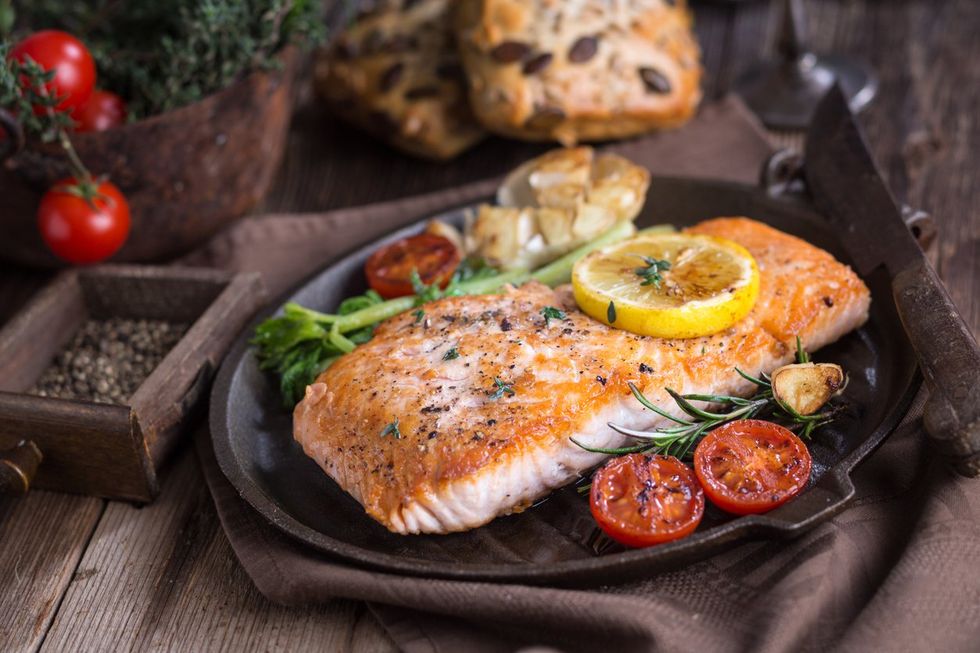
iStock.com/alle12
Change is never easy — and changing the way you eat can feel overwhelming. Start with some basic swaps, like using extra virgin olive oil instead of butter and fish instead of steak. Goldberg said a good trick is to cover half of your plate in vegetables so you know you’re getting all the heart-healthy nutrients during the meal.
And bring back breakfast. “I know some research says breakfast isn’t important, but I think it’s a great way to set the day,” she said. “Try oatmeal and berries. You get whole grains from the oatmeal and berries are full of antioxidants.”
All ingredients considered, a heart-healthy diet may save your life, considering the grim statistics regarding women and cardiovascular disease. There are things you can do to reduce your risk and have a happy, healthy heart.
- What Is the Mediterranean Diet? ›
- How to Stay Heart-Healthy After Menopause ›
- 3 Steps to Heart-Healthy Cooking ›
- 5 Easy Ways to Make Your Home Heart-Healthy ›
- 15 Heart-Healthy Foods You Should Be Eating ›
- 5 Steps to a Heart-Healthy Diet ›
- Cardiac Arrest vs. Heart Attack - HealthyWomen ›
- Fried Foods and Heart Disease - HealthyWomen ›
- How to Eat More Whole Grains - HealthyWomen ›
- Surviving a Heart Attack at Age 40: The Common Genetic Disorder I Didn't Know I Had - HealthyWomen ›
- What You Need to Know to Prevent Heart Disease - HealthyWomen ›
- In Support of the Keto Diet - HealthyWomen ›
- Preventing Cardiovascular Disease - HealthyWomen ›
- Five Healthy Habits to Improve Your Life - HealthyWomen ›
- How to Eat to Your Heart’s Content - HealthyWomen ›
- WomenTalk: The Heart Truth - HealthyWomen ›
- The Link Between Mental Health and Heart Health - HealthyWomen ›

